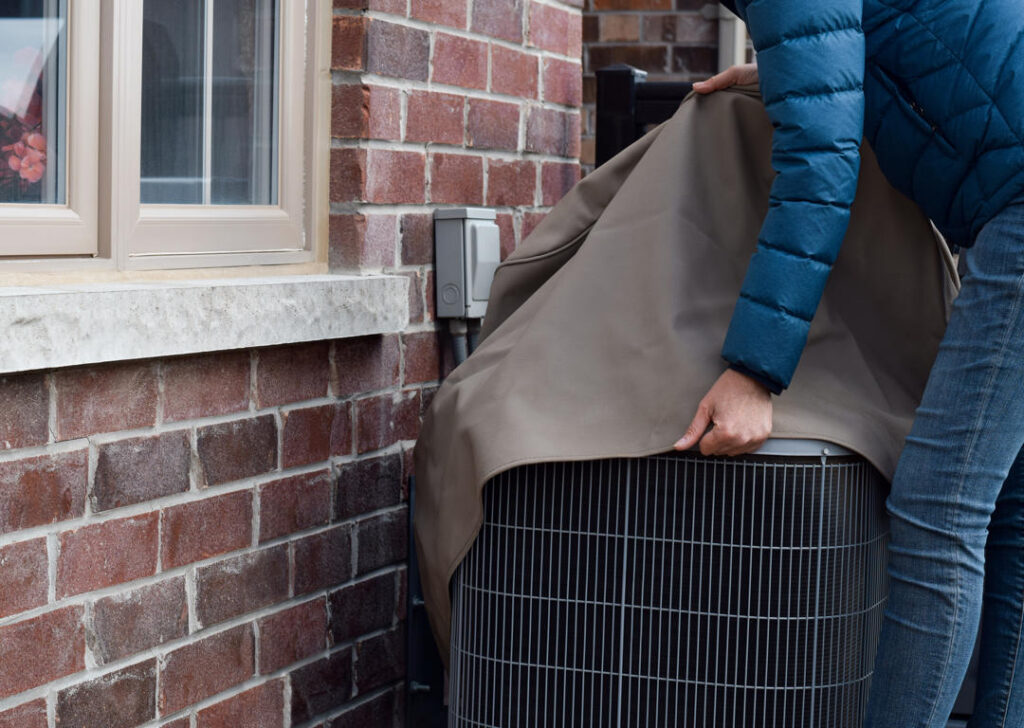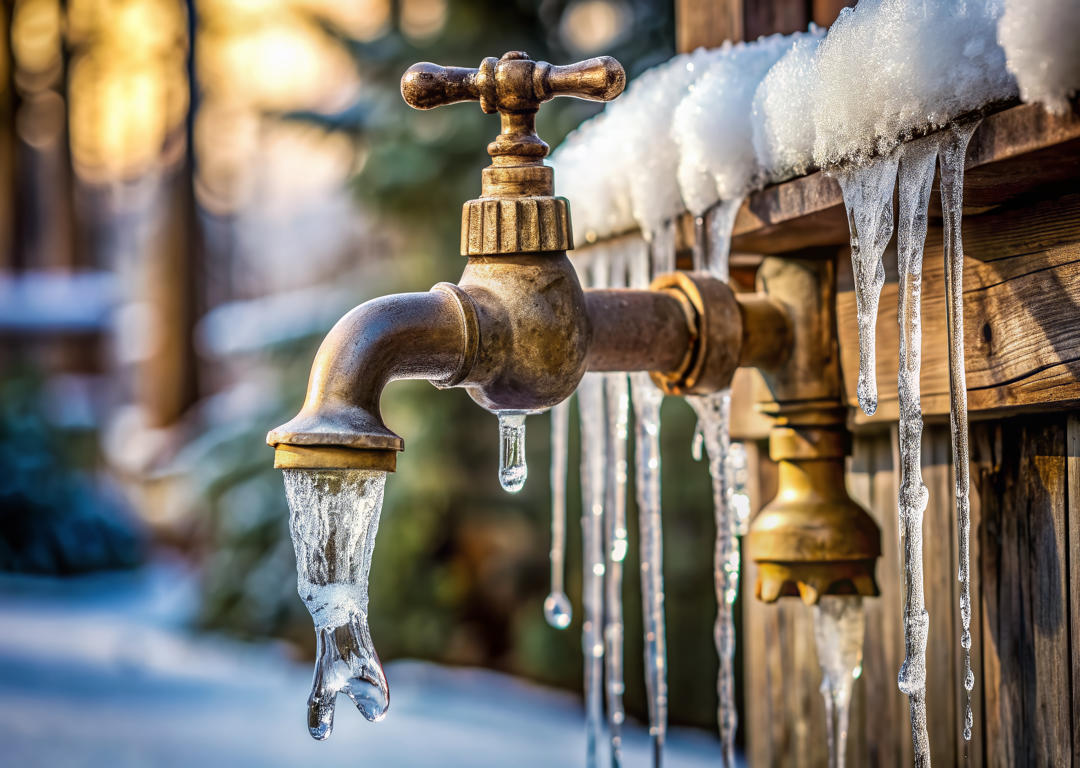How to Winterize Your Home: Essential Tips for Preparing for Winter

As the winter season approaches, preparing your home to withstand cold temperatures is crucial for both comfort and energy efficiency. Winterizing your home not only helps you stay warm but also protects your property from potential damage caused by freezing temperatures, ice, and snow. At L & L Heating and Air Conditioning, we’ve seen how a few simple steps can make a big difference in keeping your home comfortable and energy-efficient throughout the winter months. Below are key tips for preparing your home for winter, focusing on insulation, HVAC maintenance, and ways to reduce your heating bills.
Seal Windows and Doors
One of the most important steps to winterize your home is ensuring that no drafts are coming through your windows and doors. Even small gaps can allow cold air to seep into your home, forcing your heating system to work harder to maintain a comfortable temperature.
To prevent heat loss:
- Install weather stripping around doors to block drafts. This is a simple, inexpensive solution that can make a significant impact on energy savings.
- Use caulk to seal gaps around windows and door frames. Over time, these areas can develop cracks that let in cold air.
- Install door sweeps at the bottom of exterior doors to further prevent cold air from entering your home.
- These adjustments can prevent drafts and reduce the amount of energy your HVAC system consumes during the winter.
Check and Upgrade Insulation
Proper insulation is essential for keeping your home warm and reducing energy costs during winter. Heat can escape through poorly insulated walls, attics, and basements, forcing your heating system to work harder to maintain a comfortable temperature.
Start by inspecting the insulation in your attic. Heat rises, and if your attic is poorly insulated, much of it will escape through the roof. Adding insulation to your attic is one of the most effective ways to retain heat in your home. Additionally, check the insulation in your walls and floors, particularly in unfinished basements or crawl spaces. Insulating these areas can prevent cold drafts from creeping into your living spaces.
For added protection, consider installing foam insulation in hard-to-reach areas such as wall cavities or around pipes and ductwork.
HVAC Maintenance for Winter
Your heating system will work harder during the winter months, so it’s essential to ensure that your HVAC system is in top condition. Proper maintenance not only extends the life of your system but also ensures that it runs efficiently, reducing energy consumption and costs.
- Schedule a professional inspection: Before the winter begins, have a licensed HVAC technician inspect your system. This ensures that your furnace or heat pump is operating at peak performance and can prevent unexpected breakdowns during the colder months.
- Change the air filter: A clogged or dirty air filter can restrict airflow, making your HVAC system work harder to heat your home. Replacing the air filter every 1 to 3 months helps maintain efficiency and indoor air quality.
- Inspect and clean ducts: Over time, dust and debris can accumulate in your ductwork, reducing the efficiency of your heating system. Having your ducts professionally cleaned before winter can improve airflow and keep your system running smoothly.
- Test your thermostat: Ensure your thermostat is functioning correctly and set to an energy-efficient temperature. Consider upgrading to a programmable thermostat to automatically adjust the temperature based on your daily schedule, saving energy when you’re not home or asleep.
Regular HVAC maintenance is essential for preparing your home for the colder months, ensuring your heating system operates efficiently and without costly breakdowns.
Protect Plumbing Pipes
Frozen pipes are a common winter problem that can lead to expensive repairs if they burst. To prevent pipes from freezing:
- Insulate exposed pipes: Wrap pipes in unheated areas, such as basements, garages, and crawl spaces, with foam insulation. This protects them from freezing temperatures.
- Let faucets drip: On particularly cold nights, let your faucets drip slightly. Moving water is less likely to freeze, reducing the risk of pipes bursting.
- Shut off exterior water: Disconnect and drain garden hoses, then turn off the water supply to outdoor faucets. Use insulated faucet covers to protect them from freezing temperatures.
By taking these steps, you can avoid the costly damage associated with frozen pipes during winter.
Reverse Ceiling Fans
Many homeowners are unaware that ceiling fans can help regulate indoor temperatures during winter. By reversing the direction of your ceiling fans to run clockwise, you can circulate warm air trapped near the ceiling back into the living space. This trick helps improve comfort and can even reduce the workload on your heating system, leading to energy savings.
Most ceiling fans have a small switch on the motor housing that allows you to reverse the direction. In winter, run the fan at a low speed to gently push warm air downward.
Inspect Your Roof and Gutters
Winter storms can wreak havoc on your roof and gutters, especially if they aren’t properly maintained. Before the snow and ice arrive, inspect your roof for any missing or damaged shingles and make necessary repairs. Loose or damaged shingles can allow water to seep into your home, leading to leaks and water damage.
Clean your gutters and downspouts to ensure they are free of leaves, debris, and ice. Ice dams, which form when snow melts and refreezes at the edges of the roof, can cause water to back up and leak into your home. Keeping gutters clear helps prevent ice dams and ensures that melting snow drains properly away from your home.
Install Storm Windows and Doors
If you live in an older home with single-pane windows, installing storm windows and doors can significantly improve your home’s insulation. Storm windows add an extra layer of protection by trapping air between the two panes, acting as insulation and reducing heat loss.
Installing storm doors can also help block drafts and keep cold air from entering your home. These upgrades are especially useful in Denver’s colder climate, where insulation plays a key role in reducing heating costs during winter.
Winterize Outdoor Spaces
While it’s important to focus on the interior of your home, don’t forget to winterize your outdoor spaces as well. Protecting outdoor furniture, water systems, and landscaping can save you time and money when spring arrives.
- Cover outdoor furniture: Protect your patio furniture from the elements by using waterproof covers. This helps prevent rust and weather damage, extending the life of your outdoor items.
- Drain irrigation systems: If you have an irrigation system, make sure it is properly drained before the first freeze. Water left in the lines can freeze and cause the pipes to burst.
- Trim trees and bushes: Overgrown branches can become heavy with snow and ice, increasing the risk of breaking and causing damage to your home or power lines. Trimming back trees and bushes before winter helps reduce this risk.
By following these tips, you can ensure your home is well-prepared for the winter season. At L & L Heating and Air Conditioning, we specialize in helping homeowners winterize their HVAC systems, ensuring comfort and energy efficiency throughout the colder months. If you need assistance preparing your home for winter or want to schedule a furnace inspection, contact us today. With the right preparations, you can enjoy a warm, comfortable home while keeping energy costs under control all season long.





Serving Front Range Denver from Arvada to Monument
Arvada
Aurora
Boulder
Brighton
Broomfield
Castle Pines
Castle Rock
Centennial
Cherry Hills Village
Commerce City
Denver
Edgewater
Elizabeth
Englewood
Evergreen
Foxfield
Franktown
Glendale
Golden
Greenwood Village
Highlands Ranch
Ken Caryl
Lafayette
Lakewood
Larkspur
Littleton
Lone Tree
Longmont
Louisville
Morrison
Northglenn
Parker
Roxborough Park
Sedalia
Sheridan
Thornton
Westminster
Wheat Ridge




